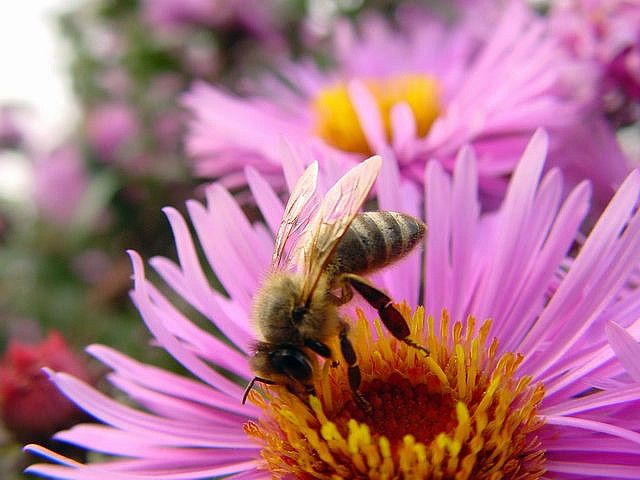3/17/2014 10:14:43 AM

Photo credit: Flickr user ndboy
Bees are receiving their share of the spotlight during this year's legislative session. Governor Dayton's bonding proposal recommends investing $12 million in the University of Minnesota Bee research laboratory, which will foster the expansion of agriculture research and help revitalize Minnesota's bee population.
The work of pollinators is vital to the health of numerous fruits, vegetables, and crops worldwide, accounting for one in every three bites of food. These busy insects improve the vitality of nearly half of Minnesota's entire crop production, which translates to thousands of jobs. Overall, Minnesota's farm and foods sectors generate $74 billion in annual economic activity for our state - helping to sustain communities across the state. The declining population is a growing concern, and Governor Dayton's recommendation is a promising investment for thousands of Minnesota farmers.
The declining bee population is caused in part by colony collapse disorder, a bizarre phenomenon in which a vast number of bees simply disappear and do not return to the hive. The University of Minnesota continues to research the bee population's demise. The University also has found that the amount of cropland dependent upon pollination is at an all-time high, but the number of managed bee hives has dropped 50 percent. Between the rising need for bees and their declining population, there clearly is a need to remedy this imbalance to prevent great agricultural losses.
Governor Dayton's recommended financial support of the University of Minnesota's internationally recognized research, teaching and extension program on honey bees will improve the research laboratory and the bee landscape. The facility improvements will help further the University of Minnesota's efforts while taking a big step towards protecting not only the indispensable pollinators, but also the economic prosperity of the thousands of Minnesota farmers who depend on them for their livelihood.
Agriculture
Education
Economy
Jobs